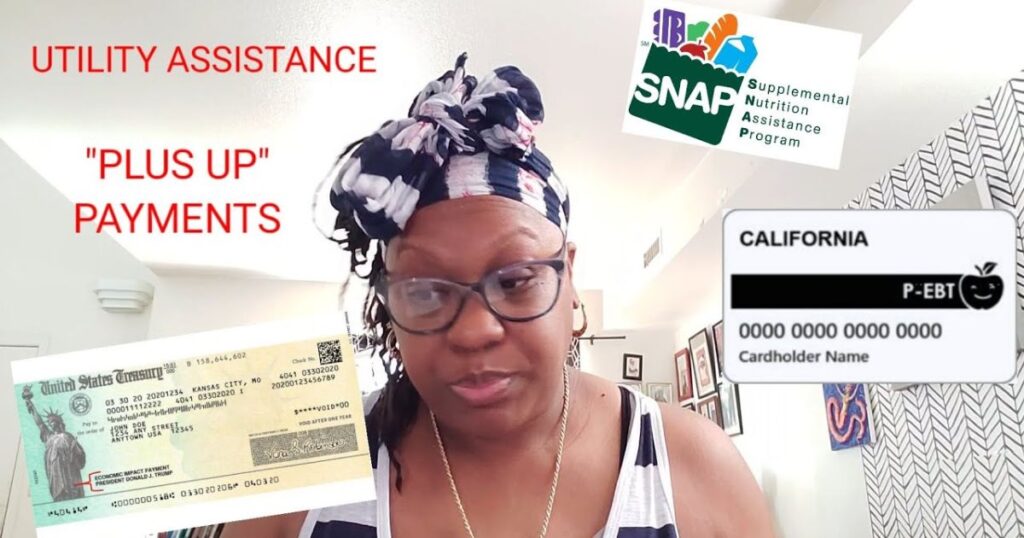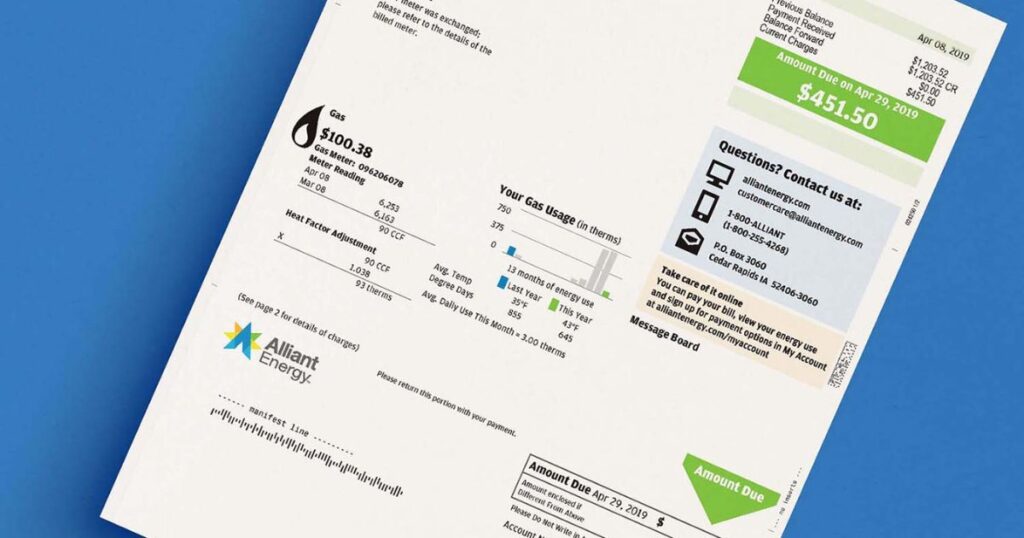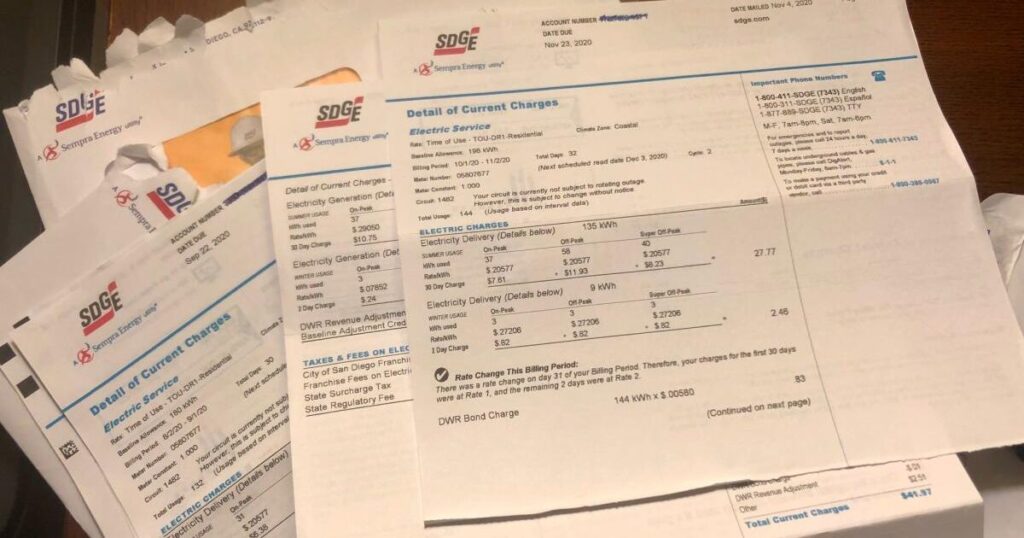Keeping the lights on and the home warm is a basic necessity, but for many Americans, paying utility bills can be an overwhelming financial burden. If you’re struggling to make ends meet, don’t lose hope – churches across the nation understand and are ready to lend a helping hand.
This comprehensive guide will walk you through accessing utility bill assistance from churches, covering eligibility requirements, the application process, and other vital resources.
Table of Contents
Why Churches Step Up to Help With Utility Costs
At the core of many churches’ missions is a commitment to compassion and community support, especially for those facing financial hardships.
Offering utility bill assistance is a tangible way for congregations to live out these values and lighten the load for families in need. It’s part of their broader social services initiatives that aim to be a source of hope during difficult times.
Some major churches well-known for utility assistance programs include:
- The Salvation Army: This global church operates worldwide and takes a holistic approach, offering aid for utility bills alongside food assistance, shelter, and employment services. Their Heat Share program is just one example of their efforts to keep homes heated.
- Catholic Charities USA: With centers nationwide, Catholic Charities aids individuals regardless of religious affiliation, welcoming all facing financial struggles with open arms. They partnered with utilities for the Catholic Charities Energy Assistance Program.
- The United Methodist Church: Through local chapters, United Methodists support vulnerable populations like low-income families and seniors with utility costs. For instance, Broadway United Methodist Church in Indianapolis runs an Energy Assistance program.
Rooted in spiritual teachings about compassion and service, these churches recognize that helping cover basic utility costs can be a vital lifeline for struggling households.
Checking If You’re Eligible for Church Utility Assistance

While specific eligibility criteria can vary between churches, there are some common factors that are typically considered:
Financial Need
The core requirement is demonstrating a genuine financial hardship that makes paying utility bills a challenge. Churches will likely request proof of income, such as:
- Recent pay stubs
- Documentation of government assistance
- Bank statements
- Proof of extenuating circumstances like medical hardships or job loss
Residency
Many churches aim to prioritize helping those within their local community or congregation. You may need to provide documentation proving your current residence, such as:
- A recent utility bill showing your name and address
- A lease agreement or mortgage statement
- Government-issued ID with your address
Income Level
Some churches set income thresholds based on federal poverty guidelines to ensure assistance goes to those most in need. They’ll look at your total household income relative to family size.
For example, Episcopal Relief & Development’s Emergency Assistance Program has a cap of 200% of the federal poverty line.
Priority Groups
Special consideration may be given to particularly vulnerable groups like:
- Seniors or disabled individuals
- Families with young children
- Single parents
- Those facing medical hardships
- Veterans
For instance, The Salvation Army’s HEATShare program prioritizes low-income seniors and families with young kids.
Past Assistance
If you’ve received utility help before, churches will look at the frequency and extent of previous aid provided. There may be limits on how often you can receive assistance.
Church-Specific Guidelines
Each congregation can set their own unique eligibility rules aligned with their mission and values. Some examples:
- A church focused on homelessness prevention may prioritize those at risk of having utilities shut off.
- An immigrant services church could require proof of legal residency status.
- A family-oriented church may have criteria related to child dependents.
The best way to determine eligibility is to contact specific churches directly and inquire about their current requirements.
Documents Typically Needed When Applying
To streamline the application process, it’s wise to gather all the necessary documentation ahead of time. While requirements can vary, churches commonly ask for:
- Proof of Identity: A valid photo ID like a driver’s license or passport.
- Proof of Residence: A utility bill, lease agreement, mortgage statement, or other documentation showing your current address.
- Income Documentation: Recent pay stubs, an employer’s letter, proof of government assistance (ex: SNAP, TANF), or other income verification.
- Unpaid Utility Bills: Copies of the past due gas, electric, water, or other utility bills you need assistance with.
- Bank Statements: Some churches may request these to assess your overall financial situation and expenditures.
- Proof of Hardship: If facing a specific hardship like medical bills, job loss, or other emergency, official documentation can strengthen your application.
- Household Information: Details on all household members like names, ages, and relationships to the applicant.
- Completed Application Form: Churches often have their own application forms asking specific questions about your financial details, utility costs, and assistance needs.
Having all of these documents ready organized can help ensure a smooth and efficient application experience.
Read this Post: DON’T ANSWER CALLS FROM THESE AREA CODES IN NEW YORK
Step-by-Step Guide to Applying for Church Utility Assistance
While application processes may differ slightly between churches, here is a general step-by-step guide:
- Research Local Churches Offering Assistance: Search online for “churches that help with utility bills near me” or inquire with local social services agencies for referrals to churches with utility aid programs in your area.
- Confirm Eligibility Requirements: Review the eligibility criteria for any churches you plan to apply with to ensure you meet their specific guidelines before proceeding.
- Gather Required Documents: Collect all the documentation listed above that each church requires, such as ID, proof of income, utility bills, etc. Make copies to include with applications.
- Complete Application Forms: Carefully fill out any application forms the churches provide, clearly detailing your household information, financial situation, utility payment struggles, and how much assistance you need.
- Schedule Meeting or Assessment: Many churches conduct an in-person meeting, interview, or phone call to better understand your circumstances beyond just the paperwork.
- Submit Full Application Package: Once your applications are complete with all supporting documents attached, submit as instructed – whether by mail, email, fax, online portal, or in-person.
- Await Decision Notification: After reviewing your full application, the church will notify you (typically by phone or mail) regarding your approval status and if you qualified for assistance.
- If Approved, Expect Payment or Resolution: Accepted applicants typically receive some form of payment, whether a check directly to the applicant to make a utility payment, funds paid to the utility provider, or a guarantee the utilities won’t be shut off.
If denied, don’t get discouraged! You may be able to appeal the decision by providing additional documentation. Or, simply re-apply at other churches and cast a wider net, as different churches have varying requirements.
“The process was easier than I expected – the church made me feel comfortable and really listened to my situation. Within two weeks of applying, they paid my overdue electricity bill directly to the utility company so I could keep the lights on. I’m so grateful.” – Andrea T.
Other Community Resources for Utility Bill Assistance

Churches are not the only option for those needing help with utilities. If you struck out with churches or need additional aid, here are some other potential resources:
- LIHEAP (Low Income Home Energy Assistance Program): This federal program provides funds to states to assist eligible households with heating and cooling costs. Call 1-866-674-6327 for your local LIHEAP agency.
- State/Local Government Aid: Many states and municipalities offer utility payment assistance programs for income-qualified households, seniors, or families. Check with your state/county social services office.
- Nonprofit Organizations: Groups like NeedHelpPayingBills.com compile lists of local nonprofits that may offer utility bill assistance.
- Utility Company Assistance Plans: Some providers have payment plan options, budget billing, discounts, or short-term debt relief for customers in need. Reach out to your utility company.
- Weatherization Programs: These can help reduce utility costs long-term by making homes more energy efficient, such as adding insulation or HVAC
Success Stories: How Church Utility Aid Changed Lives
Sometimes hearing real examples can provide hope and demonstrate the powerful impact these utility assistance programs can have. This section highlights a few brief testimonials from those who were able to keep their utilities connected thanks to church aid:
“I’m a single mom, and when my hours were cut at work unexpectedly, I just couldn’t juggle all the bills. I fell so behind on the electric that I started getting shut-off notices. Our church saw my situation and stepped in with emergency utility help. Because of their compassion, my kids and I never had to go without power. It allowed me to get back on my feet financially without sacrificing our basic needs.” – Sarah E.
“As a person with a disability on a fixed income, any unexpected expense is a major struggle. When my ancient furnace gave out during a brutal winter, I was at a total loss for how to pay those high heating bills. My church charity not only helped cover the gas bills, but they pitched in funds to get me a new energy-efficient furnace installed at no cost. Now I can stay warm affordably. I’m beyond grateful.” – Jose R.
Having these real-life stories interspersed can help readers envision how churches are truly making a difference and motivate them to seek out the same assistance if needed.
Frequently Asked Questions
Do I have to be a church member or a certain religion to get help?
No, the vast majority of churches open their utility aid to anyone in need from the community, regardless of religious affiliation, background, or membership status. Assistance is based solely on financial need.
Is this a loan that needs to be paid back eventually?
No, church utility bill assistance does not typically need to be repaid – it is a charitable grant provided to those struggling financially in crisis situations. The funds never have to be paid back.
If approved, how is the utility payment provided?
This can vary, but the two most common methods are: 1) The church directly pays the outstanding balance owed to the utility company on your behalf, or 2) They issue you a check or cash grant for you to make the payment yourself.
How much assistance can I receive? Is there a maximum limit?
The amount of aid provided depends on the church’s available budget and your specific outstanding utility balances. Some programs have annual or lifetime limits on how much you can receive, while others review it case-by-case.
Can I get help with other household bills like rent/mortgage too?
While the primary focus is utilities, some churches may bundle in assistance for other core housing costs like rent/mortgage if you also need help with those bills and meet all other criteria. It’s best to inquire about eligibility for multi-bill aid.
Do I apply each month or is it a one-time application?
Most churches require you to reapply for additional utility aid rather than providing ongoing monthly assistance. Be prepared to resubmit all documentation each time a new need arises.
Comparing Top Churches’ Utility Bill Assistance Programs
To help you further evaluate your options, this section provides a quick comparison chart of several major churches’ utility payment assistance offerings:
| Church Program | Eligibility | Assistance Provided | Service Area | How to Apply |
| Salvation Army HEATShare | Low-income households, priority for seniors/families with children | Heating bill assistance | Varies by local corps | Call 1-800-SAL-ARMY |
| Catholic Charities Energy Assistance Program | Must meet 150% of poverty level | Help with gas, electric, propane bills | Nationwide | Apply through local diocesan branch |
| United Methodist Church Outreach Programs | Low-income, elderly, disabled, crisis situations | Depends on local church offerings | United States | Check local UMC church/outreach center |
| Episcopal Relief & Development | 200% of federal poverty level or urgent crisis | Help with utility bills, rent/mortgage | United States | Apply online or through Episcopal Diocese |
Having this comparison compiled can allow readers to quickly evaluate which church’s program best fits their situation based on factors like income, location, and available assistance.
Tips for Budgeting & Avoiding Future Utility Bill Struggles
While these utility assistance funds can provide vital temporary relief, the goal should be to regain financial stability to stay on top of bills long-term. This section could provide money management tips like:
- Ways to reduce utility usage and lower bills
- How to set up budget billing or payment plans with providers
- Advice on debt consolidation and prioritizing expenses
- Habits for saving an emergency fund for unexpected costs
- Resources for credit counseling and financial coaching
- Energy efficiency upgrades that can save money over time
- Government utility assistance programs to apply for continual aid
The key is empowering readers to break the cycle of needing constant utility bill bailouts by developing healthier money skills. With thoughtful guidance, they can potentially achieve long-term financial self-sufficiency.
